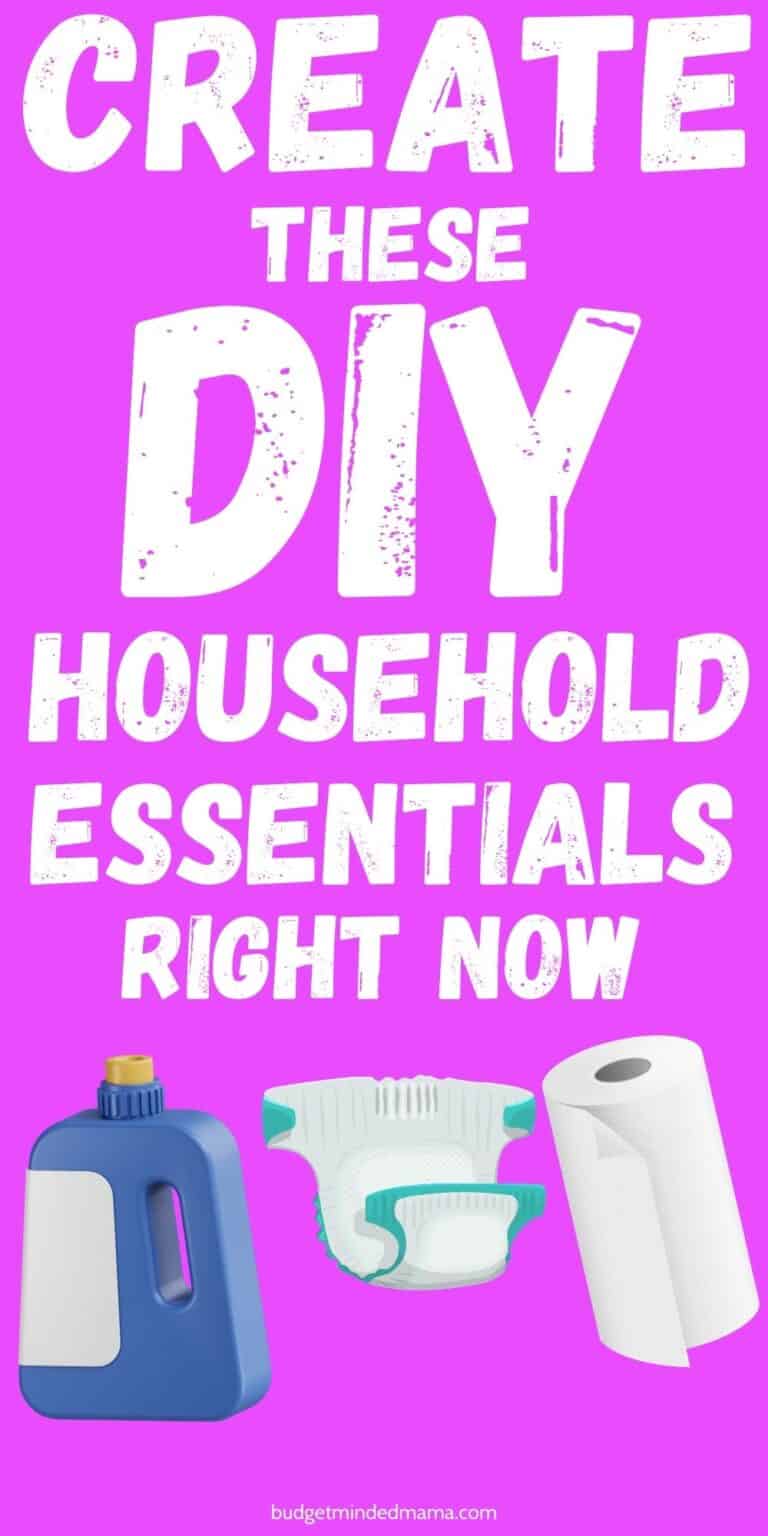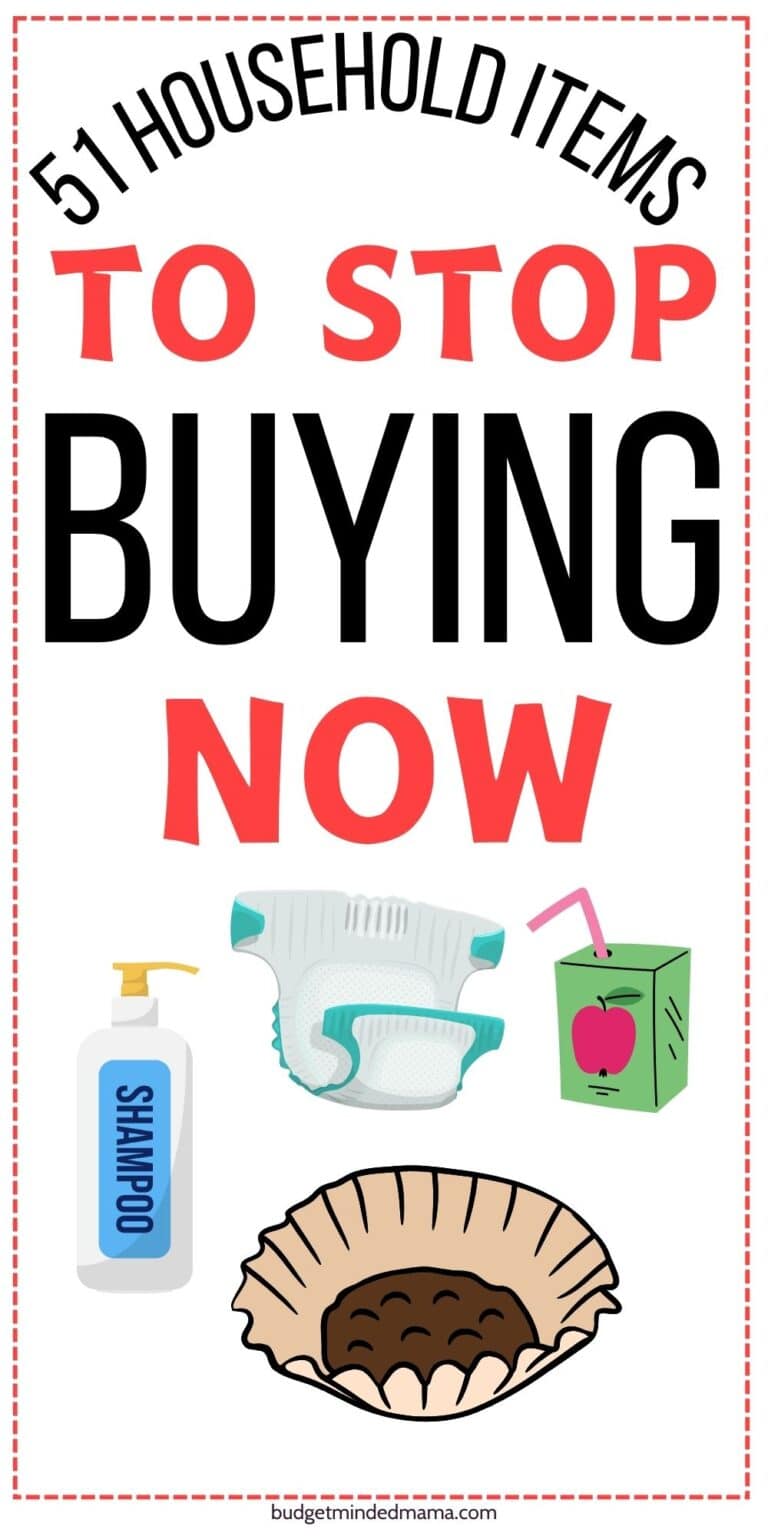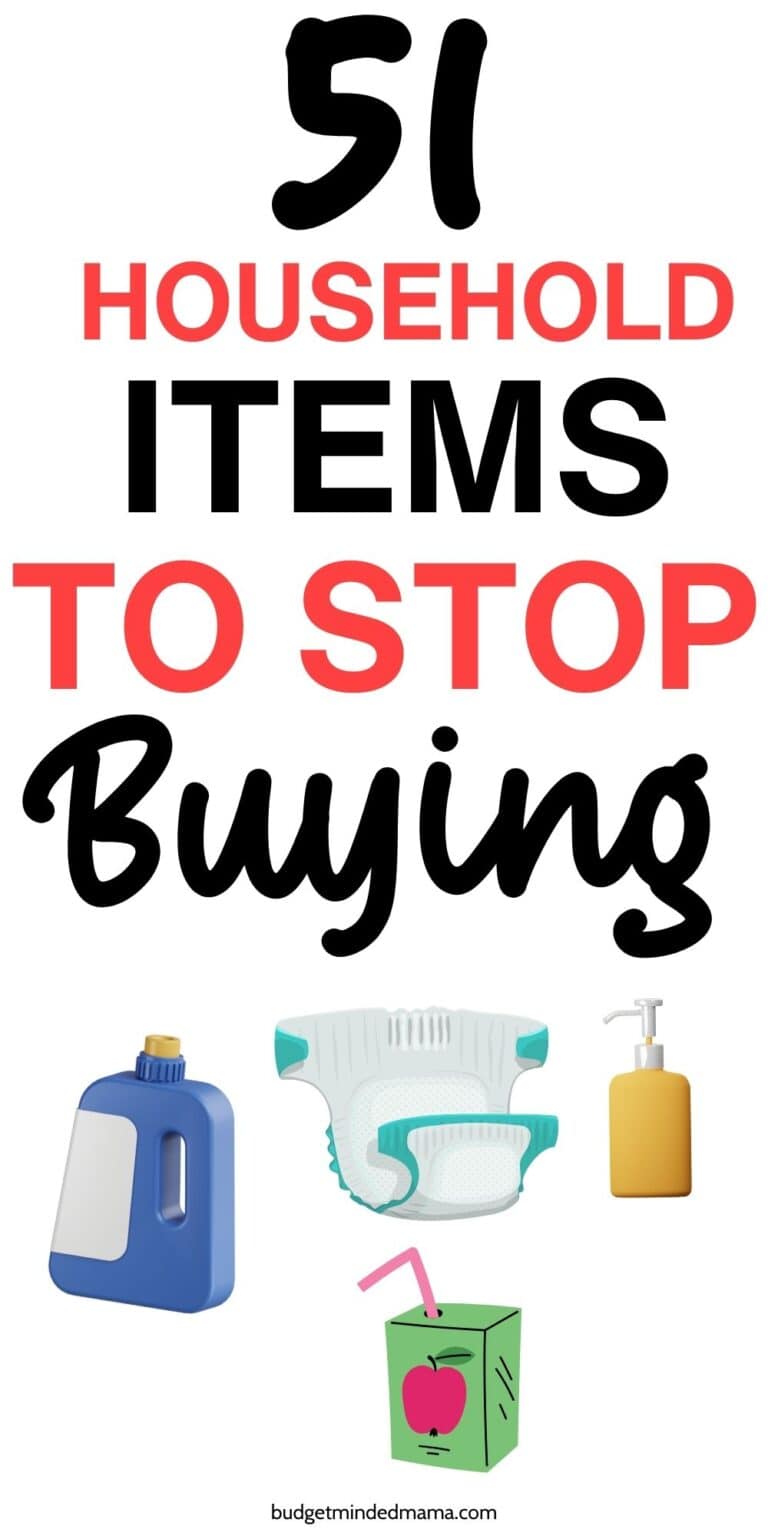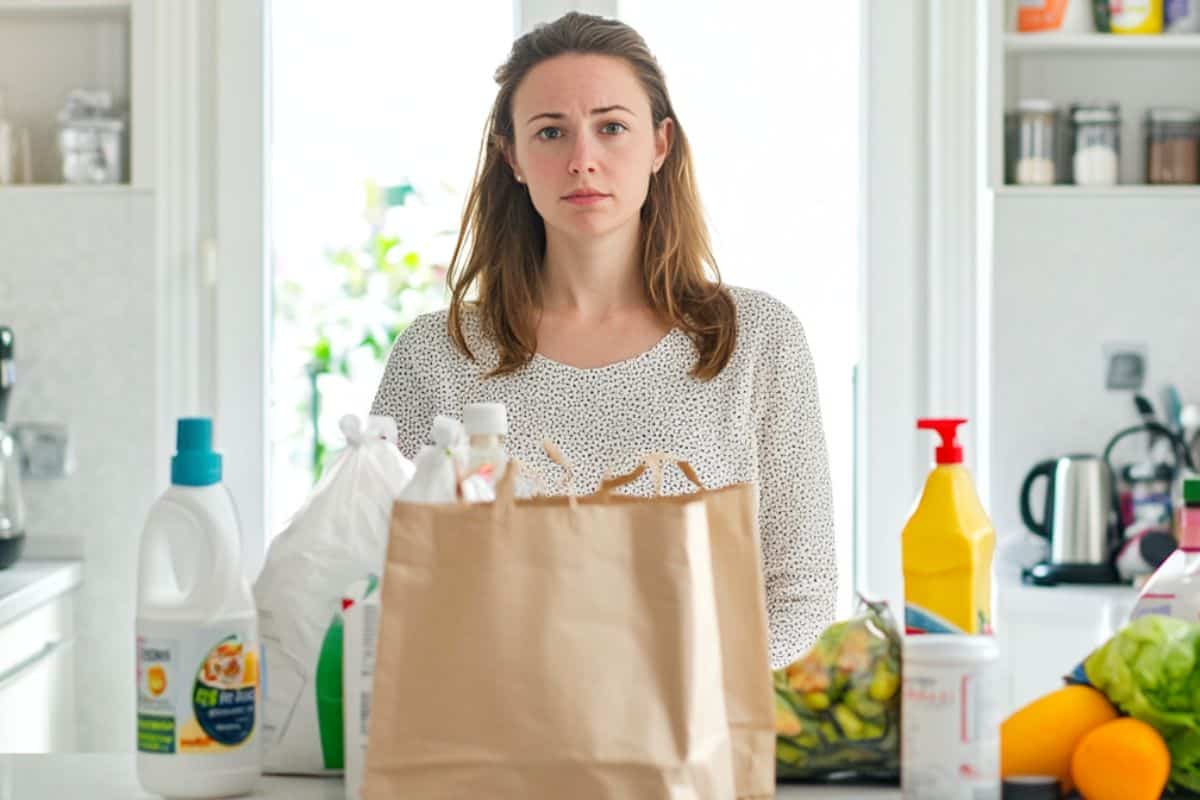As moms, we’re always on the lookout for ways to stretch our budget and make life a little easier.
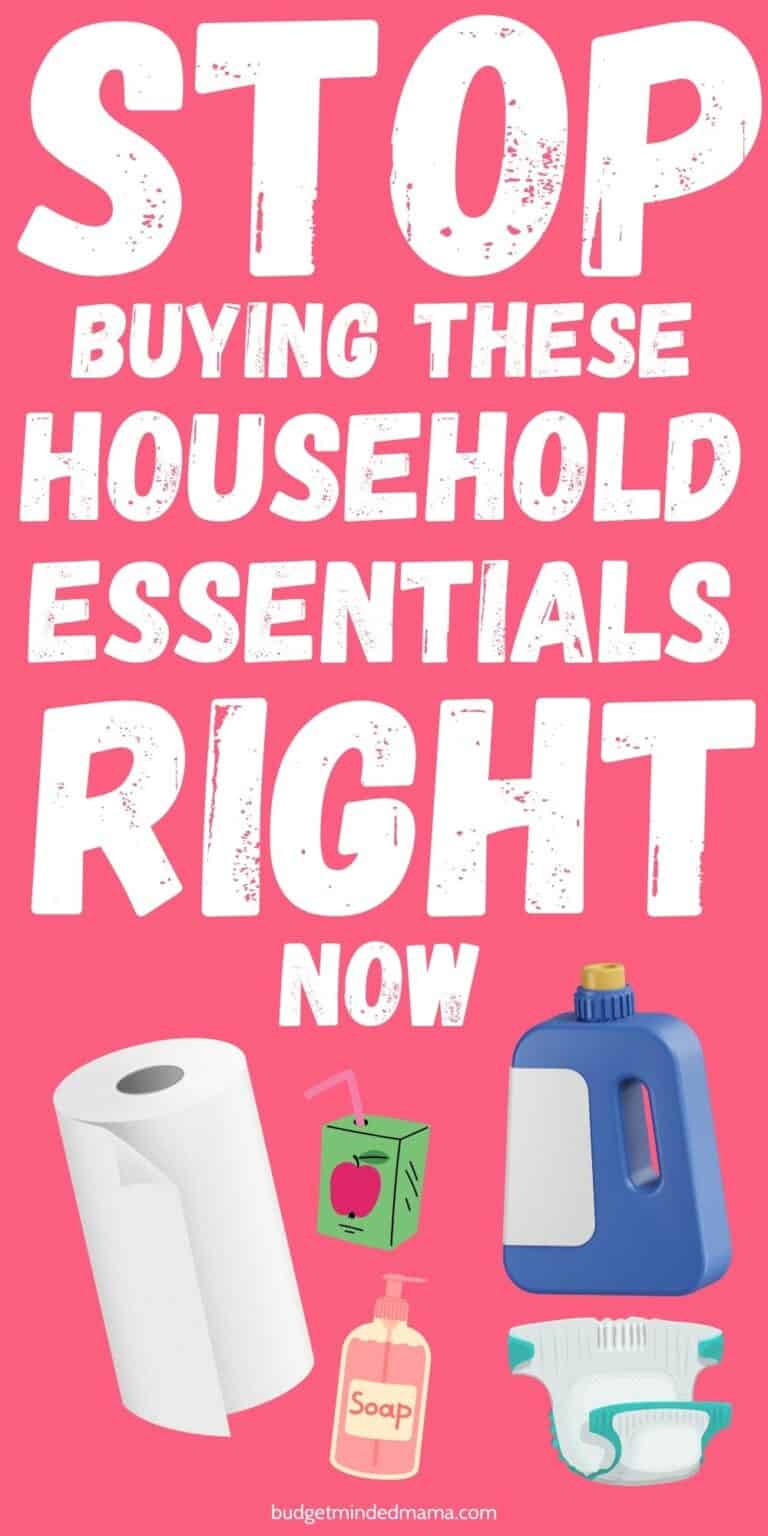
But you know what?
Sometimes, the everyday things we buy out of habit are the ones quietly draining our wallets.
It’s time to take a closer look at what’s really needed and what can be skipped.
I’ve been there too, filling my cart with items I thought I couldn’t live without, only to realize later that they weren’t making life better or easier.
The truth is, many of the things we buy out of convenience can often be replaced by something we already have at home, or maybe we don’t even need them at all.
Cutting back doesn’t have to mean giving up on quality or comfort—it just means getting more intentional with our spending.
Plus, when we start saving on those unnecessary buys, that extra cash can go toward something that truly brings value to our lives, like a family day out or a fun treat for the kids.
So, let’s save some money together by cutting back on a few “essentials” that aren’t as essential as we thought.
1. Paper Towels
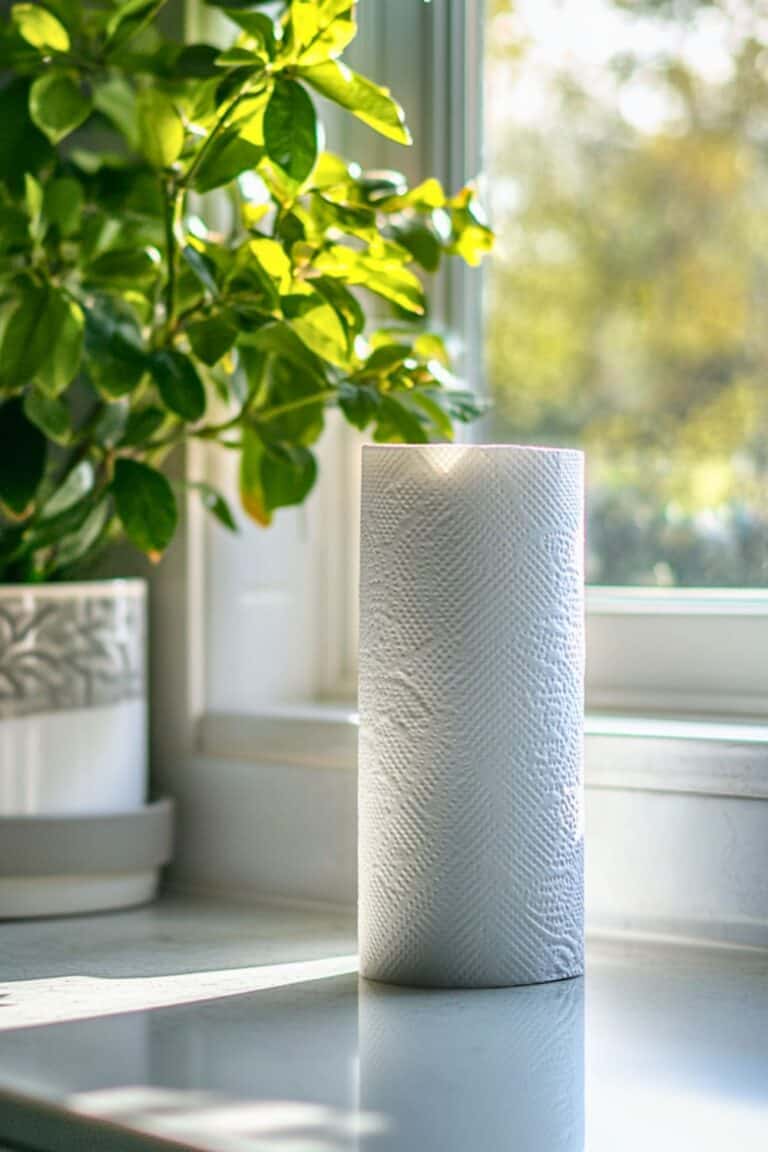
Paper towels are convenient, but they’re also expensive and wasteful.
Swapping them for reusable cloths can cut down on your grocery bill and keep more money in your pocket.
Cloths can be washed and reused over and over, making them a cost-effective and eco-friendly alternative.
2. Plastic Storage Bags
It’s easy to grab a plastic bag for leftovers, but those costs add up.
Switching to reusable silicone bags or glass containers can save money in the long run.
They’re durable, easy to clean, and will last for years, unlike the single-use bags that quickly run out.
3. Disposable Food Containers
Using disposable containers for leftovers or lunches is a habit that quickly gets expensive.
Investing in a set of reusable containers can save money in the long run. They’re sturdier, better for the environment, and easy to clean.
4. Disposable Plates and Cutlery
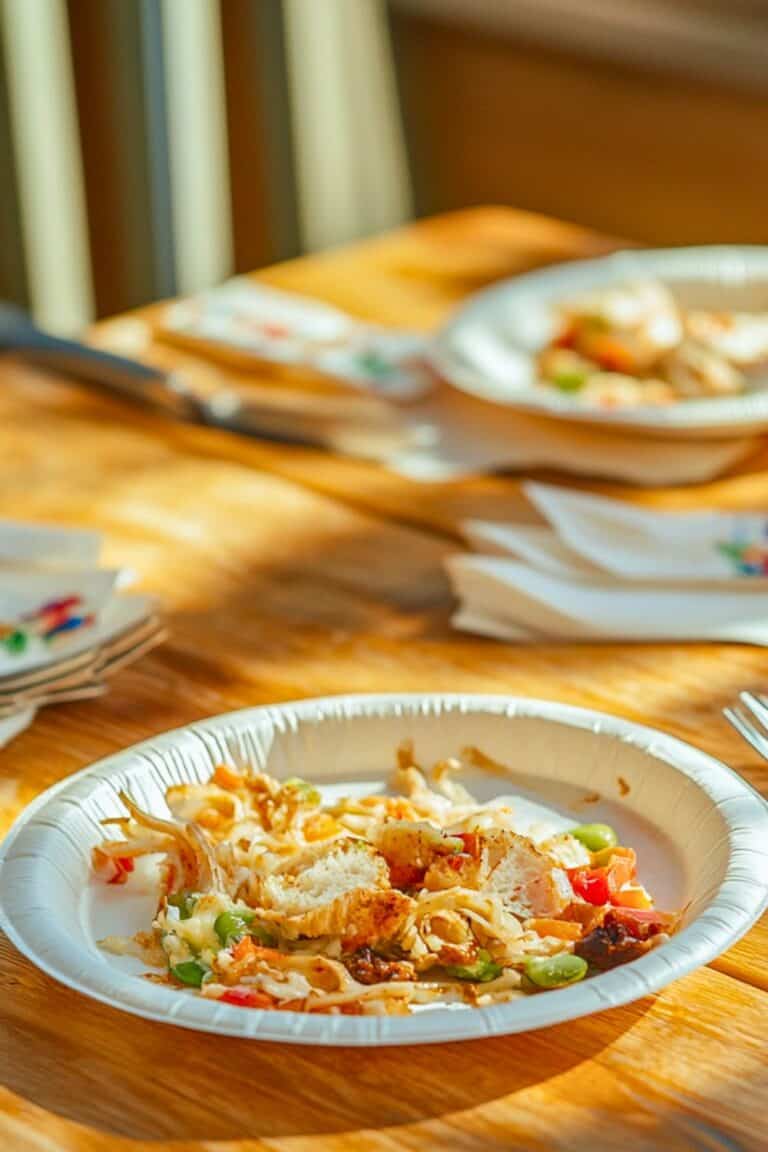
Disposable dishes are tempting for busy families, but constantly buying them eats into your budget.
Investing in a set of affordable, lightweight reusable plates and cutlery is better for your wallet and the planet.
Plus, you’ll never have to worry about running out when you need them!
5. Paper Napkins
Paper napkins are easy to grab, but they’re a regular expense.
Cloth napkins can be washed and reused, offering a more affordable and sustainable option.
They’re perfect for everyday meals and special occasions alike.
6. Coffee Pods
Those little coffee pods might make mornings easier, but they’re far more expensive than buying ground coffee.
A reusable coffee pod or a traditional drip coffee maker can save you a surprising amount each month.
You’ll still get your caffeine fix without the extra cost.
7. Paper Coffee Filters
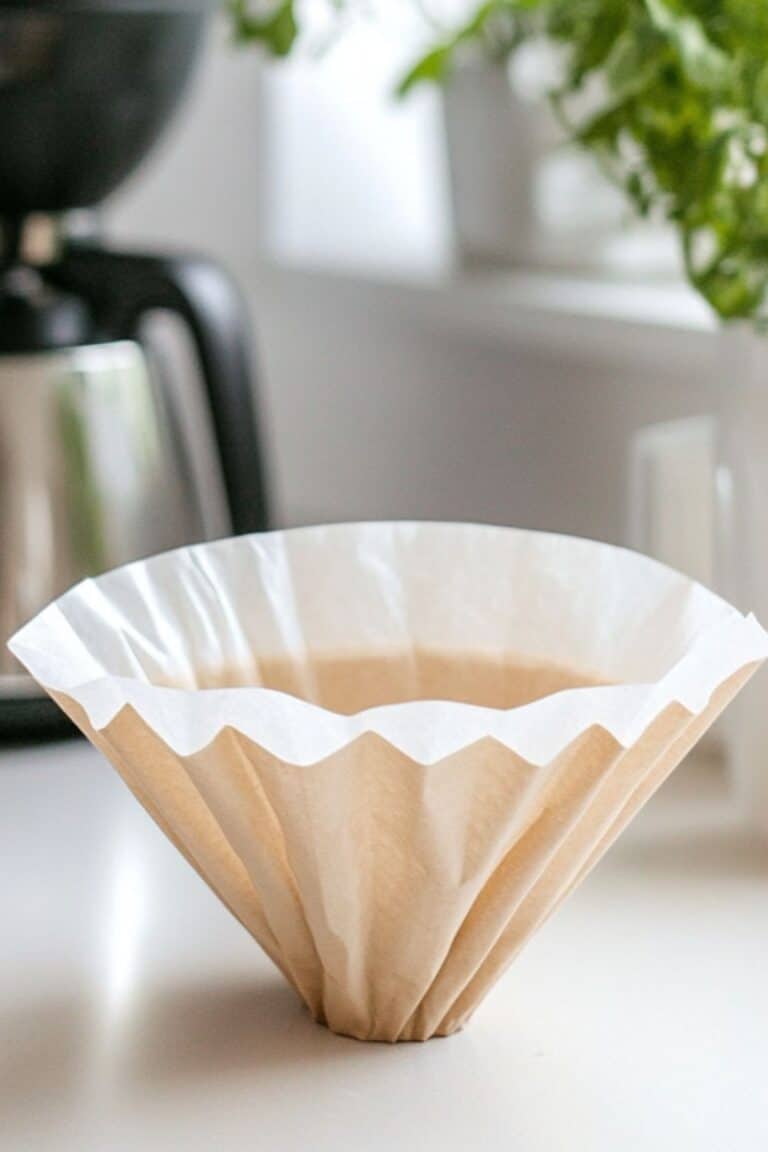
Single-use coffee filters may not seem pricey, but they add up over time.
A reusable metal or cloth filter eliminates this recurring expense and is easy to rinse after each use.
It’s a small switch that makes a big difference.
8. Plastic Wrap
Plastic wrap is handy, but constantly buying it isn’t.
Beeswax wraps or silicone covers are great reusable alternatives that can help you save.
They’re perfect for covering bowls or wrapping snacks and can be used again and again.
9. Specialty Kitchen Gadgets
Specialty gadgets may seem helpful, but they often collect dust in the drawer.
Instead of splurging on a new slicer or peeler, stick to multi-purpose tools that can handle various tasks.
You’ll save space and avoid wasting money on items you barely use.
10. Pre-Cut Fruits and Vegetables
Buying pre-cut produce might save a few minutes, but it costs much more than buying whole fruits and veggies.
With a little bit of prep at the start of the week, you can save money and have fresh, ready-to-go snacks for your family that cost a lot less!
11. Pre-Packaged Snacks
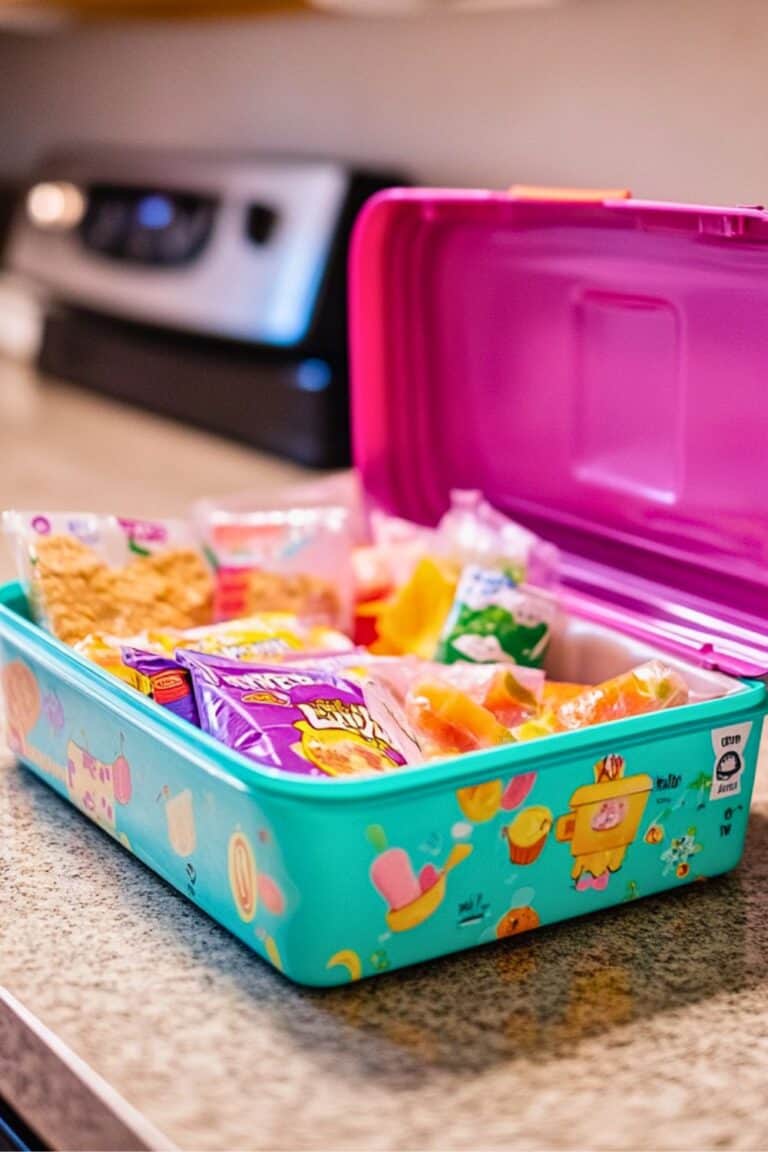
Pre-packaged snacks are easy to grab, but they come at a higher price.
Making your own snack packs with bulk items for school like nuts, dried fruit, or crackers can stretch your dollar further.
For kids, you can make snack packs with crackers, cheese, and deli meat.
It also gives you more control over what you’re eating.
12. Pre-Grated Cheese
Grated cheese can cost nearly double the price of a block of cheese.
A simple grater and a few extra minutes can save you money and give you fresher, better-tasting cheese.
Plus, no added preservatives or anti-caking agents.
13. Pre-Mixed Seasonings
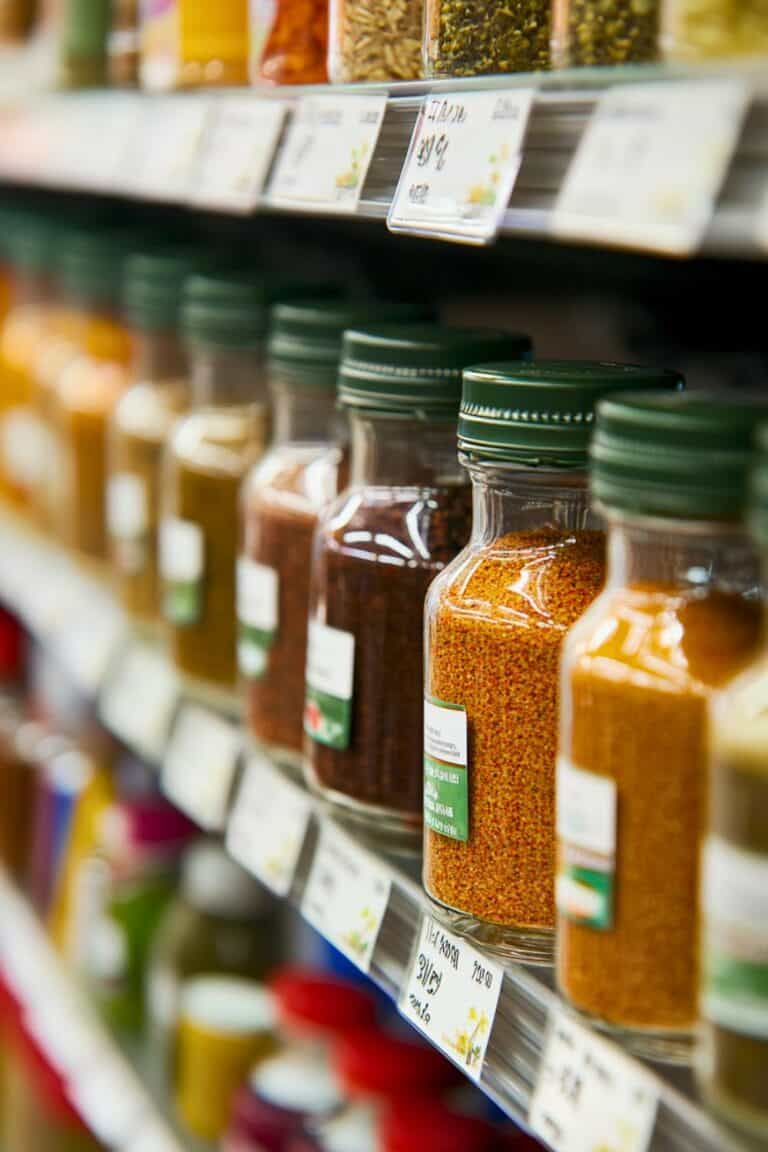
Pre-mixed seasonings might be convenient, but they’re more expensive than buying spices separately.
Making your own blends at home lets you save and experiment with flavors.
You’ll have fresh, custom-made mixes without the added cost.
14. Juice Boxes
Juice boxes are quick and easy, but they’re not budget-friendly.
Instead, grab a large bottle of juice and pour it into a reusable bottle for on-the-go.
It’s cheaper, creates less waste, and can even be healthier if you pick juices with less sugar.
15. Pre-Bottled Smoothies
Pre-bottled smoothies are often pricey and not as nutritious as they seem.
Making your own at home with frozen fruit, yogurt, and a blender can save money and give you full control over the ingredients.
Batch prep and freeze for quick morning grab-and-go options.
16. Single-Serve Yogurt Cups
Single-serve yogurt cups are convenient but cost more than buying larger tubs.
Purchase a big container of yogurt and portion it out yourself.
It’s cheaper, and you can add your own toppings for extra flavor.
17. Expensive Shampoo and Conditioner
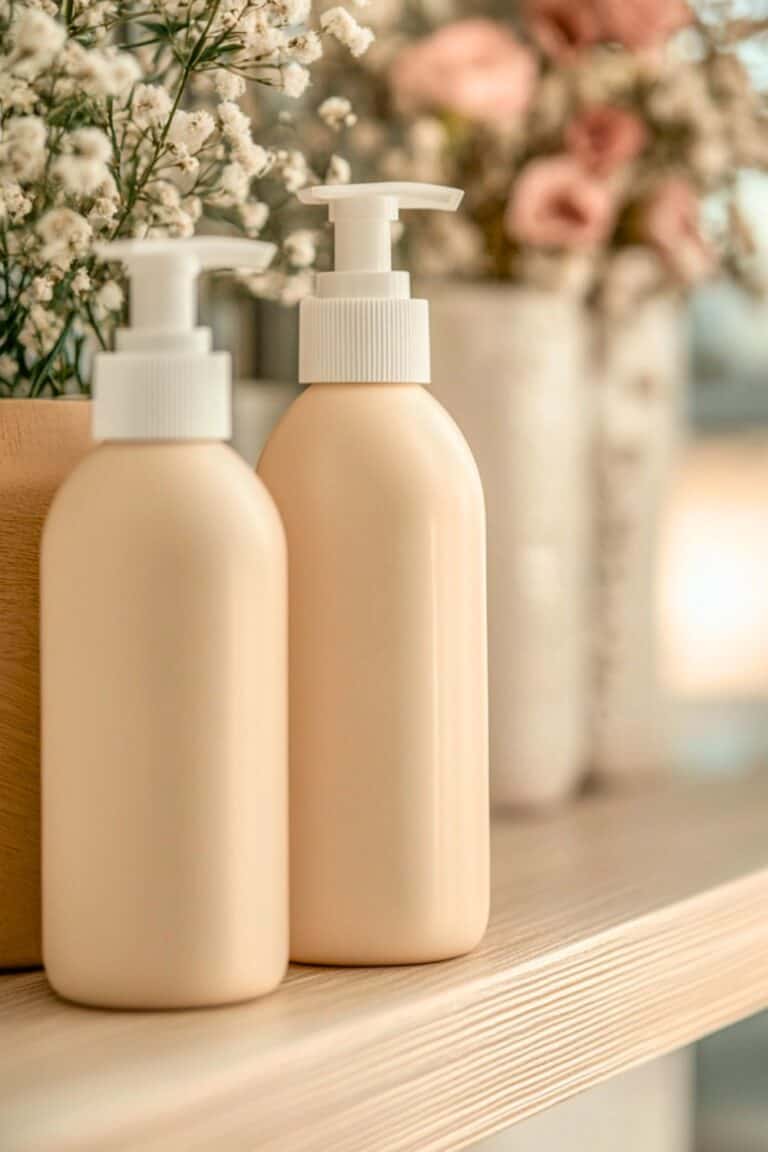
High-end hair care products can be pricey, but you don’t always need them for great hair.
Drugstore brands often work just as well, and there are plenty of affordable, quality options.
You’ll see a big difference in your budget without sacrificing hair health.
18. Disposable Razors
Constantly buying disposable razors adds up over time.
Switching to a safety razor or reusable handle with replaceable blades can save money and reduce waste.
Plus, these alternatives often provide a closer, smoother shave.
19. Disposable Makeup Wipes
Makeup wipes are easy to use, but they can be pricey and harsh on your skin.
Switching to reusable makeup remover cloths or a gentle cleanser with a washcloth will save money over time.
They’re effective, easy to clean, and better for the environment.
20. Cotton Swabs
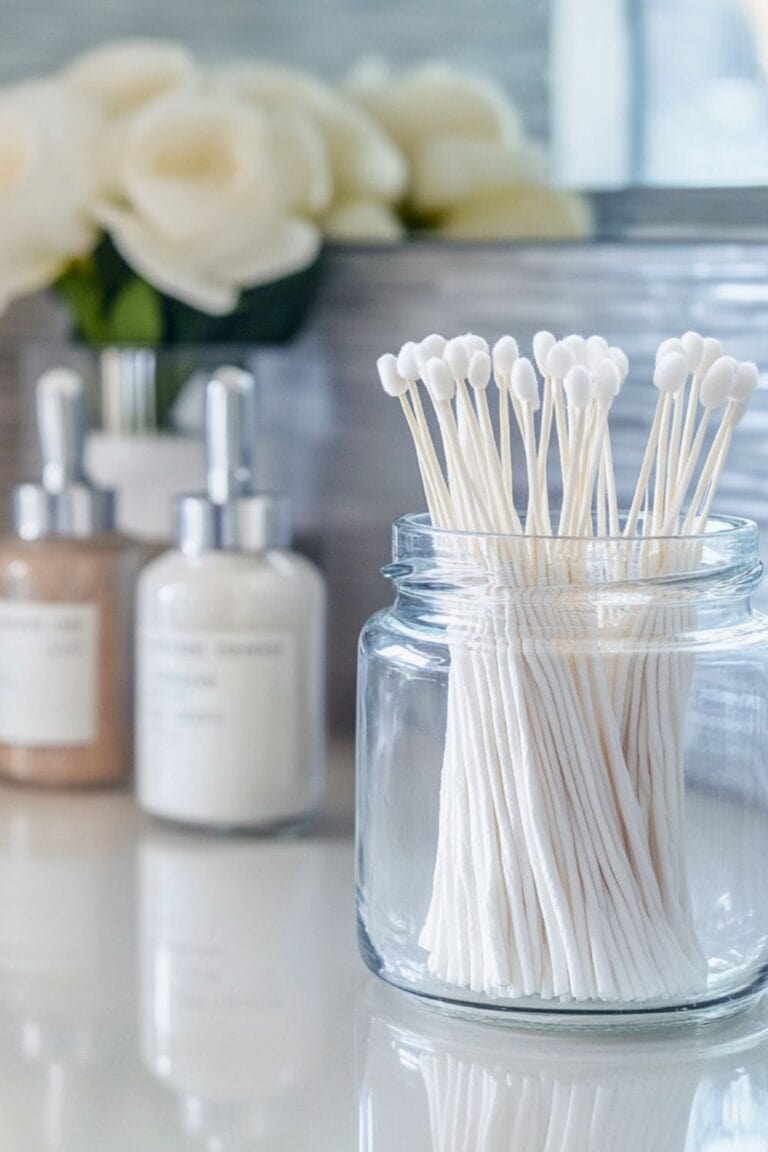
Cotton swabs are often used for more than they should be, like cleaning ears.
Limit your use and save money by opting for reusable alternatives or using a washcloth for makeup touch-ups.
Less waste, less cost.
21. Fabric Softener
Fabric softener is an extra cost that your laundry doesn’t need.
Wool dryer balls are a reusable alternative that can help clothes dry faster and come out softer, without the added chemicals or cost.
22. Dryer Sheets
Like fabric softener, dryer sheets are a recurring expense.
Consider using dryer balls or adding a few drops of essential oil to them if you want that fresh scent.
They can last for years, cutting out the need for constant repurchasing.
23. Single-Use Cleaning Wipes
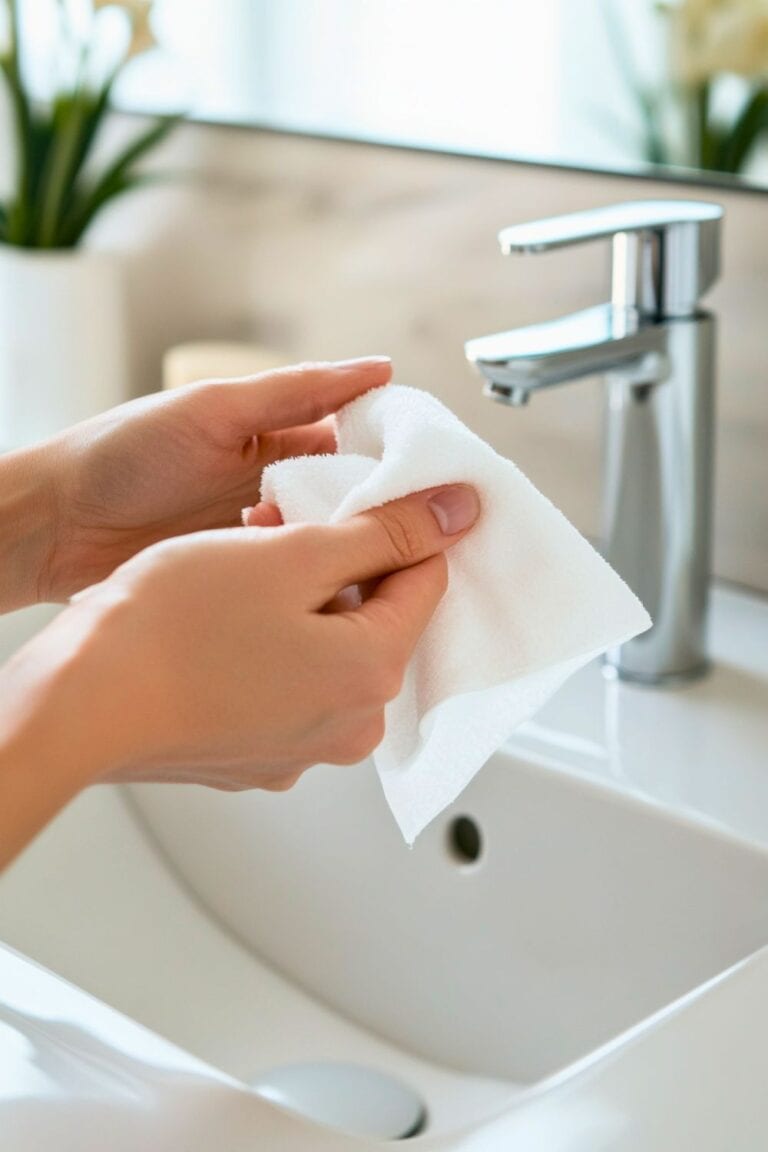
Cleaning wipes are convenient, but they’re also expensive.
A spray bottle with a homemade cleaner and a set of reusable cloths can tackle any mess for a fraction of the cost.
It’s just as easy, and you’ll save a lot over time.
24. High-End Laundry Detergent
Premium detergent brands often charge more for the same cleaning power.
Switching to a budget-friendly brand or even making your own detergent can save a surprising amount each year.
Your clothes will still be just as clean.
25. Name-Brand Cleaning Products
Name-brand cleaning products are often more expensive than their generic counterparts.
Go for store brands or make your own simple cleaners with vinegar, baking soda, and water.
They’re just as effective and far more budget-friendly.
26. Disposable Sponges
Sponges wear out quickly and need to be replaced often.
Switching to reusable dishcloths or silicone sponges can last longer and save money.
They’re easy to clean, too, which keeps them fresh and ready to use.
27. Liquid Hand Soap
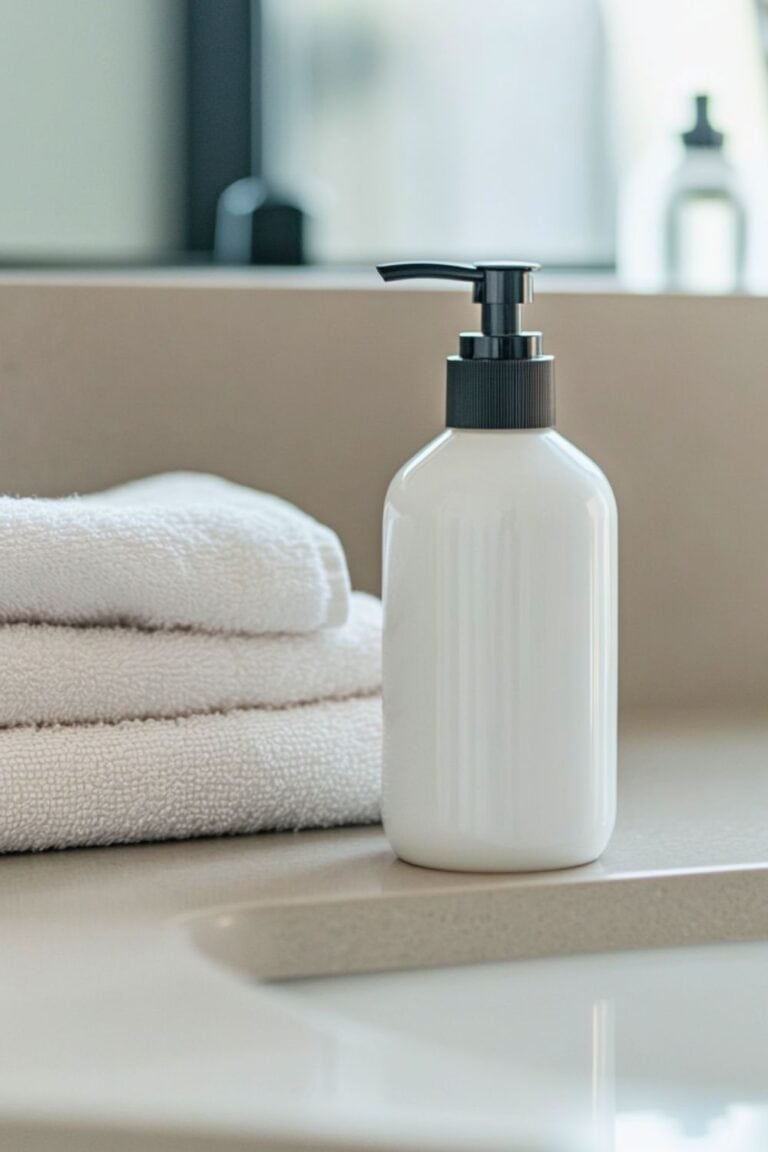
Instead of buying new hand soap bottles each time, switch to refillable dispensers.
Purchase a bulk container of soap, and refill as needed.
It’s cheaper, less wasteful, and you won’t have to buy a new bottle every time you run out.
28. Disposable Dusters
Disposable dusters get the job done, but replacing them can be costly.
A reusable microfiber duster can be washed and reused, keeping your home clean without constantly restocking.
It’s just as effective, with a one-time purchase.
29. Bottled Water
Bottled water is convenient, but it’s also pricey and creates a lot of plastic waste.
Investing in a quality water filter and reusable bottle means you’ll always have clean water without the constant expense of buying bottles.
30. Air Fresheners
Air fresheners are easy, but they need frequent replacement.
Switching to essential oil diffusers or simply opening a window can freshen up your home without the added cost.
It’s a small change that can make a big difference.
31. Brand-Name Medications
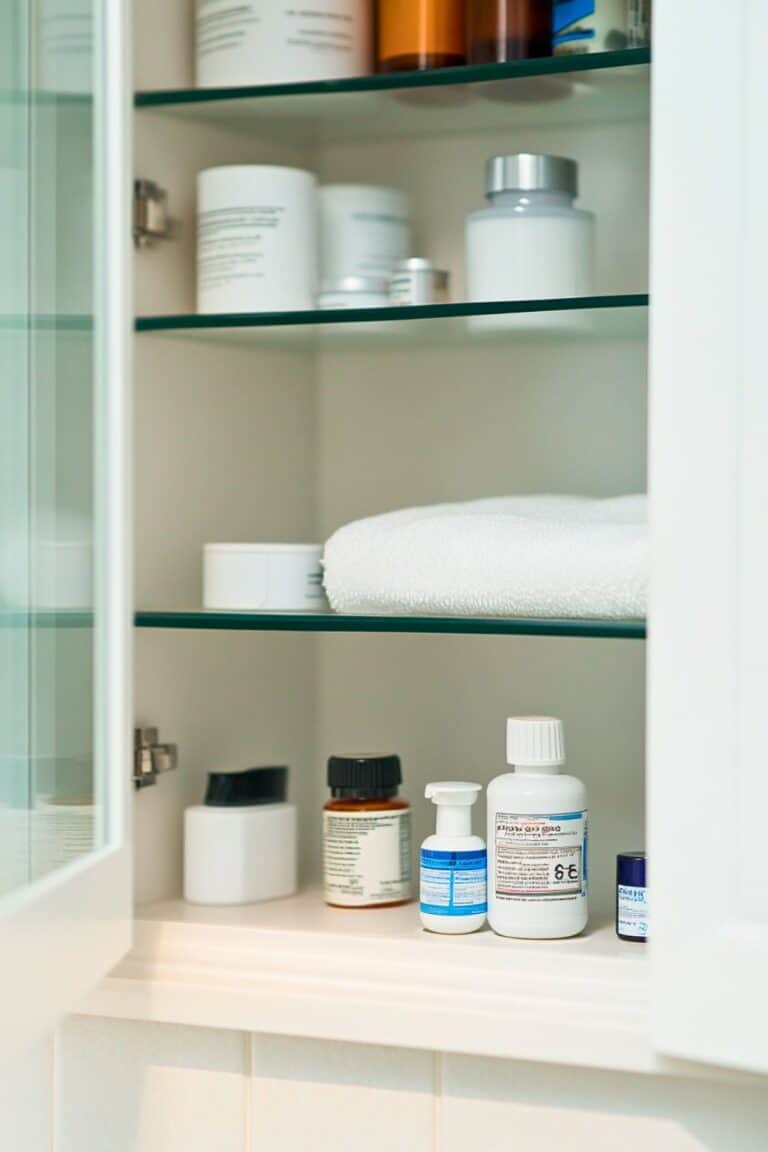
Brand-name medications are often much pricier than their generic versions, but the active ingredients are usually the same.
Choosing generics is an easy way to save, without compromising effectiveness. It’s a smart switch to make for regular needs.
More Household Essentials You Should Ditch
- Disposable tablecloths
- Single-use aluminum foil sheets
- Individually wrapped straws
- Pre-made salad kits
- Pre-portioned pet food packages
- Disposable gloves for cleaning
- Disposable baking trays
- Pre-cooked packaged meals
- Plastic hangers
- Expensive brand-name dish soap
- Toothpicks in individual wrappers
- Disposable dust masks (for non-medical use)
- Pre-filled spice grinders
- Individual serving butter packs
- Single-serve cereal boxes
- Instant rice or pre-cooked pasta packs
- Disposable chopsticks
- Plastic party cups
- Pre-flavored water bottles
- Overly specialized cleaning tools
Small Changes, Big Difference
Cutting back on these everyday items might seem like a small step, but over time, it can lead to big savings.
By choosing reusable or budget-friendly alternatives, you’ll not only reduce waste but also keep more money in your pocket for the things that matter most.
It’s all about making smarter choices that fit into your routine without adding extra stress.
So, start swapping out a few of these items, and watch how quickly those small changes add up!
I hope you found some good things to ditch and make! Follow me on Pinterest for more penny pinching ideas!
